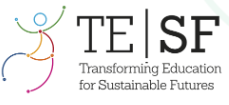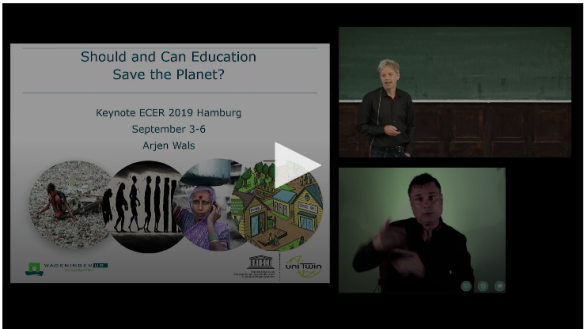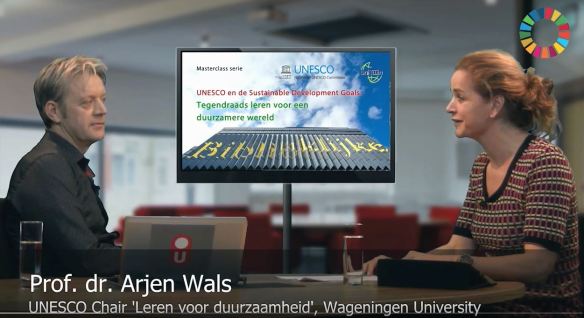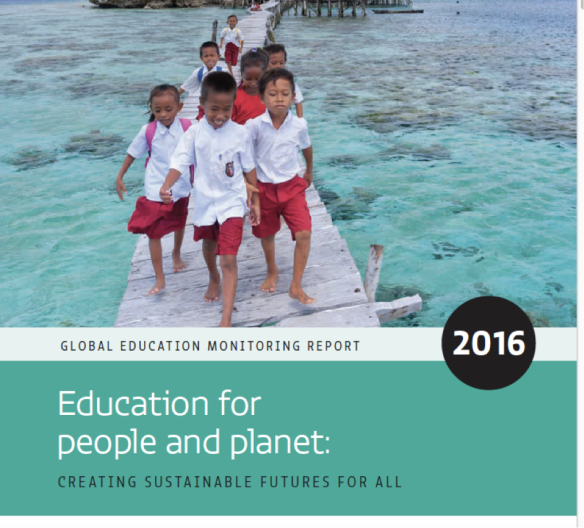 Ecologies for Learning and Practice edited by Ronald Barnett and Andrew Jackson, provides the first systematic account of the ideas of learning ecologies and ecologies of practice and locates the two concepts within the context of our contemporary world. It focuses on how individuals and society are being presented with all manner of learning challenges arising from fluidities and disruptions, which extend across all domains of life. This book examines emerging ways of understanding and living purposively in these new fluidities and provides fresh perspectives on the way we learn and achieve in such dynamic contexts.
Ecologies for Learning and Practice edited by Ronald Barnett and Andrew Jackson, provides the first systematic account of the ideas of learning ecologies and ecologies of practice and locates the two concepts within the context of our contemporary world. It focuses on how individuals and society are being presented with all manner of learning challenges arising from fluidities and disruptions, which extend across all domains of life. This book examines emerging ways of understanding and living purposively in these new fluidities and provides fresh perspectives on the way we learn and achieve in such dynamic contexts.
Providing an insight into the research of a range of internationally renowned contributors, this book explores diverse topics from the higher education and adult learning worlds. These include:
- The challenges faced by education systems today
- The concept of ecologies for learning and practice
- The role and responsibility of higher education institutions in advancing ecological approaches to learning
- The different eco-social systems of the world—local and global, economic, cultural, practical, technological, and ethical
- How adult learners might create and manage their own ecologies for learning and practice in order to sustain themselves and flourish
With its proposals for individual and institutional learning in the 21st century and concerns for our sustainability in a fragile world, Ecologies for Learning and Practice is an essential guide for all who seek to encourage and facilitate learning in a world that is fundamentally ecological in nature.
In the chapter I contributed I argue that the current sustainability crisis demands a radical re-orientation of the way we learn. I consider sustainability to be an emergent property of an ecology of learning that is reflexive purposeful cocktail of actors, perspectives, forms or learning, connections and support mechanisms, driven by an ethical concern for the wellbeing of people and planet both now and in the future. Sustainability-oriented learning then becomes an organic and relational process of continuous framing, reframing, tuning and fine-tuning, disruption and accommodation, and action and reflection, which is guided by a moral compass inspired by an ethic of care. Such learning implies or even demands a certain freedom to explore alternative paths of development and new ways of thinking, valuing and doing.
The chapter introduces sustainability-oriented ecologies of learning as a blended learning space where multiple actors, often having different backgrounds, co-create sustainability organically using a variety of tools, relations, and forms of learning. The concept of whole school or whole institution approaches is introduced as a way to enact such ecologies of learning in a systemic way (see the figure below from the 2016 Global Education Monitor Report published by UNESCO).
Full reference: Wals, A.E.J. (2019) Sustainability-oriented Ecologies of Learning as a response to systemic global dysfunction In: Learning Ecologies: Sightings, possibilities, and emerging practices Ronald Barnett and Norman Jackson (Eds.), London: Taylor & Francis. p. xx-xxx
Here is a link to the book on the publisher’s website!

An ecology of learning created by a whole school approach to sustainability (source Global Education Monitoring Report, UNESCO, 2016)



 Ecologies for Learning and Practice edited by Ronald Barnett and Andrew Jackson, provides the first systematic account of the ideas of learning ecologies and ecologies of practice and locates the two concepts within the context of our contemporary world. It focuses on how individuals and society are being presented with all manner of learning challenges arising from fluidities and disruptions, which extend across all domains of life. This book examines emerging ways of understanding and living purposively in these new fluidities and provides fresh perspectives on the way we learn and achieve in such dynamic contexts.
Ecologies for Learning and Practice edited by Ronald Barnett and Andrew Jackson, provides the first systematic account of the ideas of learning ecologies and ecologies of practice and locates the two concepts within the context of our contemporary world. It focuses on how individuals and society are being presented with all manner of learning challenges arising from fluidities and disruptions, which extend across all domains of life. This book examines emerging ways of understanding and living purposively in these new fluidities and provides fresh perspectives on the way we learn and achieve in such dynamic contexts.






